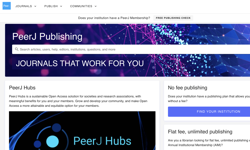
I was a librarian for 20+ years, working in universities, colleges, archives and special collections, so I know a thing or two about what libraries and their users expect. I have a particular interest in user experience and my current remit is to foster a partnership approach between librarians and publishers that enable better service design.
I don’t underestimate the challenges publishers face in the online environment. Every publisher wants to support fast, reliable access to content and to provide a quality experience that keeps end users coming back. Unfortunately, it can be expensive to keep up with technologies developed to support those ambitions – and almost impossible to attract and retain employees with the skills to make the most of them.
The need for off-campus access to resources has been turbo-charged by the pandemic
In the early days of the pandemic, I saw a significant increase in library demand for federated single sign-on solutions based on the Security Assertion Markup Language (SAML) standard and other remote access technologies.
With campuses shutting down, universities and colleges needed a reliable way to grant, privacy-preserving access to content for users working remotely. Federated single sign-on is part of that picture.
Sign-in user experience is often not a top priority for publishers
Until recently, publishers have not put sign-in experience at the heart of their service design. Back in 2011, the National Information Standards Organization (NISO) identified this as a major challenge for librarians and their users, and published their fondly named 'ESPReSSO' recommended practices.
Initially, publishers’ response to these recommendations was muted. But the recent uptick in the numbers of publishers implementing federated single sign-on and investing in UX design is undeniable. Some of the innovative work they have been doing around UX design is showcased through our annual UX awards. Reasons for this change of heart may include: library customer demand for a better user experience and ROI on their subscriptions, issues relating to piracy, competitive advantage and business sustainability.
Taking action on piracy
Piracy exists in large part because of poor security and unsatisfactory user experience. Unsecure methods of signing on make it easy for pirate websites like Sci-Hub to scrape publishers’ valuable content. Meanwhile, users are drawn to pirate sites because they struggle with multiple passwords, long sign-in journeys and confusing service design. Users may not even be aware of the security and copyright issues associated with using these sites.
Well-designed user journeys together with federated single sign-on give end users a better way to find the content they need. This also makes sure libraries get value for money from their subscriptions. It can also enable publishers to focus efforts on protecting content against misuse – rather than disabling an entire institution if licence terms are breached; publishers can simply lock out the suspicious account.
Publishers have begun to realise the best way to beat pirate sites is to give a great user sign-in experience. Publishers, libraries and software vendors have been working together to solve these challenges, resulting in NISO publishing their latest recommended practices. The community continues to work together to solve common challenges and improve access to knowledge.
Get support to help your library customers make the most of their subscription
It’s my job to foster library and publisher relationships. When a publisher and a library sit down together and talk about what each needs from an implementation, they can reach an optimal solution.
For example, a library might feel a publisher’s sign-on journey involves too many clicks. I saw this happen recently when a publisher wanted users to register separately to switch on personalisation tools. It required a bit of extra sign-on activity, and simply recognising this and shaving off the unnecessary friction has simplified library users’ journey to their content. Importantly, it preserves user privacy – while the publishers can still get the user data they need in anonymised form.
Time and again, I found talking to individual publishers and scoping out what they need to make implementation simpler can work wonders. A few training sessions to plug a skills gap, or some new documentation, could be all a publisher needs to overcome the obstacles they face in implementing federated single sign-on.

About us
OpenAthens is a leading provider of federated single sign-on services worldwide, providing remote access to content and resources from any location. OpenAthens’ technical specialists manage set-up and systems integration on publishers’ behalf and provide round-the-clock helpdesk support. Publishers can also use OpenAthens’ consultancy services to improve UX.










